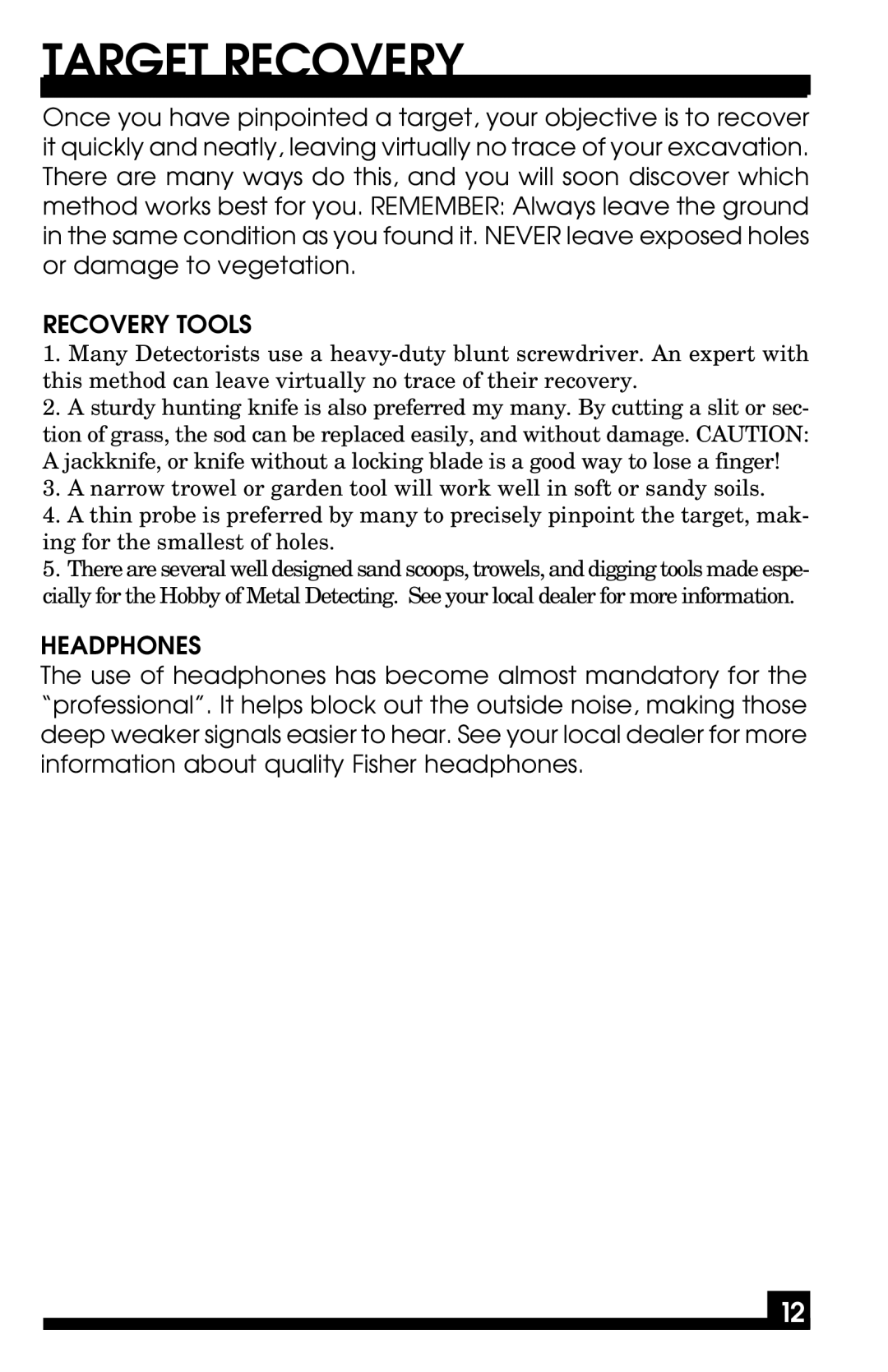
TARGET RECOVERY
Once you have pinpointed a target, your objective is to recover it quickly and neatly, leaving virtually no trace of your excavation. There are many ways do this, and you will soon discover which method works best for you. REMEMBER: Always leave the ground in the same condition as you found it. NEVER leave exposed holes or damage to vegetation.
RECOVERY TOOLS
1.Many Detectorists use a
2.A sturdy hunting knife is also preferred my many. By cutting a slit or sec- tion of grass, the sod can be replaced easily, and without damage. CAUTION: A jackknife, or knife without a locking blade is a good way to lose a finger!
3.A narrow trowel or garden tool will work well in soft or sandy soils.
4.A thin probe is preferred by many to precisely pinpoint the target, mak- ing for the smallest of holes.
5.There are several well designed sand scoops, trowels, and digging tools made espe- cially for the Hobby of Metal Detecting. See your local dealer for more information.
HEADPHONES
The use of headphones has become almost mandatory for the “professional”. It helps block out the outside noise, making those deep weaker signals easier to hear. See your local dealer for more information about quality Fisher headphones.
12
